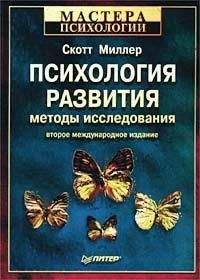Дуглас Кенрик - Рациональное животное. Как эволюция повлияла на развитие мозга

Скачивание начинается... Если скачивание не началось автоматически, пожалуйста нажмите на эту ссылку.
Жалоба
Напишите нам, и мы в срочном порядке примем меры.
Описание книги "Рациональное животное. Как эволюция повлияла на развитие мозга"
Описание и краткое содержание "Рациональное животное. Как эволюция повлияла на развитие мозга" читать бесплатно онлайн.
Почему миллиардеры столько работают, а потом бросают на ветер деньги, заработанные потом и кровью? Что общего между всеми нами и банкирами с Уолл-стрит, а также Элвисом Пресли и Стивом Джобсом?
В изящной и занимательной форме маэстро психологии Кенрик и Гришкевичус подвергают сомнению распространенные взгляды на процесс принятия решений и предлагают абсолютно новую альтернативу, основанную на эволюционной психологии. Устанавливая поразительную связь между поведением современного человека и его корнями, уходящими в прошлое, авторы показывают, что в основе «нелепых» поступков лежит чрезвычайно сложная система принятия решений.
Вкладывание денег, поиск работы, покупка машины, выбор спутника жизни — во всем этом за нашими решениями стоят скрытые эволюционные цели.
Эта замечательная книга полностью изменит ваше представление о процессе принятия решений.
76. Foa, E. B., and U. G. Foa. 1980. Resource theory: Interpersonal behavior as exchange. In K. J. Gergen, M. S. Greenberg, & R. H. Willis (Eds.), Social exchange: Advances in theory and research — New York: Plenum Press, 77–94.
77. Francis, A. M. 2011. “Sex ratios and the red dragon: using the Chinese Communist Revolution to explore the effect of the sex ratio on women and children in Taiwan”. Journal of Population Economics. 24: 813–837.
78. Frank, Robert. 1999. Luxury Fever. Princeton University Press.
79. Freiberg, K. L., and J.A. Freiberg. 1996. “Nuts! Southwest Airlines crazy recipe for business and personal success”. New York: Broadway Books.
80. Friedman, D. 1996. Hidden Order: The economics of everyday life. New York: Harper Collins.
81. Gabor, A. 2000. The capitalist philosophers. New York: Times Business.
82. Gandolfi, Arthur, Anna S. Gandolfi, and David P. Barash. 2002. Economics as an Evolutionary Science: from utility to fitness. Transaction Publishers.
83. Gangestad, S. W. and J. A. Simpson, 2000. The evolution of human mating: trade-offs and strategic pruralism”. Behavioral and brain sciences. 23:573–644.
84. Gangestad, S. W. and J.A. Simpson. 2007. The Evolution of Mind: Fundamental Questions and Controversies. New York: Guilford Press.
85. Gazzola, Valeria, Michael L. Spezio, Joset A. Etzel, Fulvia Castelli, Ralph Adolphs, and Christian Keysers. 2012. “Primary somatosensory cortex discriminates affective significance in social touch”. Proceedings of the National Academy of Sciences. 109: 9688–9689.
86. Gazzaniga, M. 1985. The social brain: Discovering the networks of the mind. New York: Basic Books.
87. Geary, D. C. 2000. “Evolution and the proximate expression of human paternal investment”. Psychological Bulletin. 126: 55–77.
88. Gettler, L.T., A.B. Feranil, T.W. McDade and C.W. Kuzawa. 2011. “Longitudinal evidence that fatherhood decreases testosterone in human males”. Proceedings of the National Academy of Sciences. 108(29):16 194–16 199.
89. Gettler L.T., T.W. McDade and C.W. Kuzawa. 2011. “Cortisol and testosterone in Filipino young adult men: Evidence for co-regulation of both hormones by fatherhood and relationship status”. American Journal of Human Biolog. 23(5): 609–620.
90. Ghazanfar, A. A., J.G. Neuhoff, N.K. Logothetis. 2002. “Auditory looming perception in rhesus monkeys”. Proceedings of the National Academy of Sciences USA. 99 (24): 15 755–15 757.
91. Gigerenzer, G., W. Gaissmaier, E. Kurz-Milcke, L. M. Schwartz and S. Wolo- shin. 2007. “Helping doctors and patients to make sense of health statistics”. Psychological Science in the Public Interest. 8: 53–96.
92. Glocker M.L., D.D. Langleben, K. Ruparel, J.W. Loughead, R.C.Gur and N. Sachser. 2009. “Baby schema in infant faces induces cuteness perception and motivation for caretaking in adults”. Ethology. 115: 257–263.
93. Godoy, Ricardo, Victoria Reyes-Garcia, Tomas Huanca, William R. Leonard, Thomas McDade, Susan Tanner, Vincent Vadez, and Graig Seyfried. 2007. “Signaling by Consumption in a Native Amazonian Society”. Evolution and Human Behavior. 28: 124–134.
94. Goodwin, D. K. 1987. The Fitzgeralds and the Kennedys: An American saga. New York: Simon & Schuster.
95. Grady, S. 1999. Kennedy curse is a product of the Kennedy hubris. Lawrence Journal-World. July 20, 6B.
96. Griskevicius, V., J. A. Ackerman, S. M. Cantu, A.W. Delton, and T. E. Robertson, J. A. Simpson, M. E. Thomson, and J. M. Tybur. 2013. “When the economy falters do people spend or save? Responses to resource scarcity depend on childhood environments”. Psychological Science. 24:197–205.
97. Griskevicius, V., J. M. Tybur, J. M. Sundie, R.B. Cialdini, G.F. Miller, and D.T. Kenrick. 2007. “Blatant benevolence and conspicuous consumption: When romantic motives elicit strategic costly signals”. Journal of Personality and Social Psychology. 93: 85–102.
98. Griskevicius, V. and D.T. Kenrick. 2013. “Fundamental motives for why we buy: How evolutionary needs influence consumer behavior”. Journal of Consumer Psychology.
99. Griskevicius, V., R.B. Cialdini and D.T. Kenrick. 2006. “Peacocks, Picasso, and parental investment: The effects of romantic motives on creativity”. Journal of Personality and Social Psychology. 91: 63–76.
100. Griskevicius, V., A.W. Delton, T.E. Robertson and J.M. Tybur. 2011. “The environmental contingency of life history strategies: Influences of mortality and socioeconomic status on reproductive timing”. Journal of Personality and Social Psychology.100: 241–254.
101. Griskevicius, V., N. J. Goldstein, C. R. Mortensen, R.B. Cialdini, and D. T. Kenrick. 2006. “Going along versus going alone: When fundamental motives facilitate strategic (non)conformity”. Journal of Personality and Social Psychology. 91: 281–294.
102. Griskevicius, V., N. J. Goldstein, C.R. Mortensen, J. M. Sundie, R. B. Cialdini, and D.T. Kenrick. 2009. “Fear and loving in Las Vegas: Evolution, emotion, and persuasion”. Journal of Marketing Research. 46: 385–395.
103. Griskevicius, V., J. M. Tybur, and B. Van den Bergh. 2010. “Going green to be seen: Status, reputation, and conspicuous conservation”. Journal of Personality and Social Psychology. 98: 392–404.
104. Griskevicius, V., J. M. Tybur, J.A. Ackerman, A. W. Delton, T. E. Robertson, and A.E. White. 2012. “The financial consequences of too many men: Sex ratio effects on saving, borrowing, and spending”. Journal of Personality and Social Psychology. 102: 69–80.
105. Griskevicius, V., A. W. Delton, T. E. Robertson and J. M. Tybur. 2011. “The influence of mortality and socioeconomic status on risk and delayed rewards: A life history theory approach”. Journal of Personality and Social Psychology. 100: 1015–1026.
106. Griskevicius, V., J. M. Tybur, S. W. Gangestad, E. F. Perea, J. R. Shapiro, and D. T. Kenrick. 2009. “Aggress to impress: Hostility as an evolved context-dependent strategy”. Journal of Personality and Social Psychology. 96: 980–994.
107. Grubbs-West, L. 2005. Lessons in loyalty: How Southwest Airlines Does It — An insider’s view. Dallas, TX: Cornerstone Leadership Institute.
108. Guttentag, M., and P.F Secord. 1983. Too many women? The sex ratio question. Beverly Hills, CA: Sage Publications.
109. Hagen, E. H., and P. Hammerstein. 2006. “Game theory and human evolution: A critique of some recent interpretations of experimental games”. Theoretical Population Biology. 69: 339–348.
110. Hamilton, W. D. 1964. “The genetical evolution of social behavior”. Journal of Theoretical Biology. 7: 1–52.
111. Haselton, M. G. and D. M. Buss. 2000. “Error management theory: A new perspective on biases in cross-sex mind reading”. Journal of Personality and Social Psychology. 78: 81–91.
112. Haselton, M. G. and D. Nettle. 2006. “The paranoid optimist: An integrative evolutionary model of cognitive biases”. Personality and Social Psychology Review. 10 (1): 47–66.
113. Haselton, M. G., G. A. Bryant, A. Wilke, D. A. Frederick, A. Galperin, W. Frankenhuis and T. Moore. 2009. “Adaptive rationality: An evolutionary perspective on cognitive bias”. Social Cognition. 27: 733–763.
114. Henrich, J. and F.J. Gil-White. 2001. “The evolution of prestige: freely conferred status as a mechanism for enhancing the benefits of cultural transmission”. Evolution and Human Behavior.22: 165–196.
115. Henrich, J. et al. 2005. “Economic Man’ in Cross-Cultural Perspective: Behavioral Experiments in 15 Small-scale Societies”. Behavioral and Brain Sciences. 28 (6): 795–815.
116. Hesketh, T. 2009. “Too many males in China: The causes and consequences”. Significance. 6: 9–13.
117. Hill S. E., C. Rodeheffer, V. Griskevicius, K.M. Durante, and A.E. White. 2012. “Boosting beauty in an economic decline: Mating, spending, and the lipstick effect”. Journal of Personality and Social Psychology. 103: 275–291.
118. Hill, K. and A.M. Hurtado. 1996. “Ache life history: The ecology and demography of a foraging people”. Hawthorne, New York: Aldine de Gruyter.
119. Hill, K., and H. Kaplan. 1999. “Life history traits in humans: Theory and empirical studies”. Annual Review of Anthropology. 28: 397–438.
120. Hill, Sarah E. and Kristina M. Durante. 2011. “Courtship, Competition, and the Pursuit of Attractiveness: Mating Goals Facilitate Health-Related Risk-Taking and Strategic Risk Suppression in Women”. Personality and Social Psychology Bulletin. 37: 383–394.
121. Hirsch, A. M. 2004. “Plant-microbe: A continuum from commensalism to parasitism”. Symbiosis. 37: 345–363.
122. Hoeksma, J. D., and E.M. Bruna. 2000. Pursuing the big questions about interspecific mutualism: A review of theoretical approaches”. Oecologia. 125: 321–330.
123. Hoorens, Vera. 1993. “Self-enhancement and Superiority Biases in Social Comparison”. European Review of Social Psychology (Psychology Press.) 4 (1): 113–139.
124. Hrdy, S. B. 1999. Mother Nature: A history of mothers, infants, and natural selection. New York: Pantheon.
125. Hudson, Valerie M., and Andrea M. den Boar. 2005. Bare Branches: The Security Implications of Asia’s Surplus male Population. MIT Press.
126. Iredale, W., Van Vugt, M., and R.I.M. Dunbar. 2008. “Showing off in Humans: Male Generosity as a Mating Signal”. Evolutionary Psychology. 6 (3): 386–392.
127. Isaacson, Walter 2011. Steve Jobs. Simon & Schuster. (Издание на русском языке: Айзексон У. Стив Джобс. — М.: АСТ, Corpus, 2012.)
128. Johnson, D. D. P., and J. H. Fowler. 2011. “The Evolution of Overconfidence”. Nature. 477: 317–320.
129. Kahneman, Daniel 2011. Thinking fast and slow. Farrar, Straus and Giroux. (Издание на русском языке: Канеман Д. Думай медленно… Решай бы- стро. — М.: АСТ, 2013.)
130. Kahneman, Daniel and Amos Tversky. 1979. “Prospect Theory: An Analysis of Decision Under Risk”. Econometrica. 47: 263–291.
131. Kanazawa, S. 2001. “De Gustibus Est Disputandum”. Social Forces. 79:1131–1163.
132. Kanfer, S. 1993. The last empire: De Beers, diamonds, and the world. New York: Harper Collins.
133. Kaplan, H. and S. Gangestad. 2005. “Life history theory and evolutionary psychology”. In The Handbook of Evolutionary Psychology. David M. Buss (Ed). John Wiley and Sons: 68–95.
134. Kenrick, D. T. 2011. Sex, murder, and the meaning of life: A psychologist investigates how evolution, cognition, and complexity are revolutionizing our view of human nature. New York: Basic Books. (Издание на русском языке: Кенрик Д. Секс, убийство и смысл жизни. — СПб.: Питер, 2012.)
135. Kenrick, D. T., C. Gabrielidis, R.C. Keefe, and J. Cornelius. 1996. ‘Adolescent’s age preferences for dating partners: Support for an evolutionary model of life- history strategies. Child Development. 67: 1499–1511.
136. Kenrick, D. T., and L. Gomez-Jacinto. 2013. “Economics, Sex, and the Emergence of Society: A dynamic life history model of cultural variation”. In M. Gelfand, C. Y. Chiu, and Y. Y. Hong (Eds.) Advances in Culture and Psychology, Vol. 3. New York: Oxford University Press.
137. Kenrick, D. T., V. Griskevicius, S. L. Neuberg, and M. Schaller. 2010. “Renovating the pyramid of needs: Contemporary extensions built upon ancient foundations”. Perspectives on Psychological Science. 5: 292–314.
138. Kenrick, D. T., V.Griskevicius, J. M. Sundie, N. H. Li, Y. J. Li, and S. L. Neu- berg. 2009. “Deep rationality: The evolutionary economics of decision- making”. Social Cognition. 27: 764–785.
139. Kenrick, D. T., G.R. Groth, M.R. Trost, and E.K. Sadalla. 1993. “Integrating evolutionary and social exchange perspectives on relationships: Effects of gender, self-appraisal, and involvement level on mate selection criteria”. Journal of Personality and Social Psychology. 64: 951–969.
140. Kenrick, D. T., and R. C. Keefe. 1992. “Age preferences in mates reflect sex differences in human reproductive strategies”. Behavioral & Brain Sciences. 15: 75–133.
141. Kenrick, D. T., R. C. Keefe, A. Bryan, A. Barr, and S. Brown. 1995. “Age preferences and mate choice among homosexuals and heterosexuals: A case for modular psychological mechanisms”. Journal of Personality and Social Psychology. 69: 1166–1172.
142. Kenrick, D. T., N. L. Li, and J. Butner. 2003. “Dynamical evolutionary psychology: Individual decision rules and emergent social norms”. Psychological Review. 110: 3–28.
143. Kenrick, D. T., Y. J. Li, A. E. White, and S.L. Neuberg. 2012. “Economic Subselves: Fundamental motives and Deep Rationality”. Pp. 23–43 in J. Forgas, K. Fiedler, & C. Sedikides (eds.). Social thinking and interpersonal behavior: The 14th Sydney Symposium of Social Psychology. — New York: Psychology Press.
144. Kenrick, D. T., and C. L. Luce. 2000. “An evolutionary life-history model of gender differences and similarities”. In T. Eckes & H. M. Trautner (Eds.). “The developmental social psychology of gender”(pp. 35–63). Hillsdale, New York: Erlbaum.
145. Kenrick, D. T., S. L. Neuberg, V. Griskevicius, M. Schaller, and D.V. Becker. 2010. “Goal-driven cognition and functional behavior: The fundamental motives framework”. Current Directions in Psychological Science. 19:63–67.
146. Kenrick, D. T., E. K. Sadalla, G. Groth, and M.R. Trost. 1990. “Evolution, traits, and the stages of human courtship: Qualifying the parental investment model”. Journal of Personality. 53: 97–116.
147. Kenrick, D. T., F. Sanabria, J.M. Sundie, and P.R. Killeen. 2006. “When dilemmas disappear: How fitness interdependencies transform strategic games”. Unpublished manuscript.
Подписывайтесь на наши страницы в социальных сетях.
Будьте в курсе последних книжных новинок, комментируйте, обсуждайте. Мы ждём Вас!
Похожие книги на "Рациональное животное. Как эволюция повлияла на развитие мозга"
Книги похожие на "Рациональное животное. Как эволюция повлияла на развитие мозга" читать онлайн или скачать бесплатно полные версии.
Мы рекомендуем Вам зарегистрироваться либо войти на сайт под своим именем.
Отзывы о "Дуглас Кенрик - Рациональное животное. Как эволюция повлияла на развитие мозга"
Отзывы читателей о книге "Рациональное животное. Как эволюция повлияла на развитие мозга", комментарии и мнения людей о произведении.

























